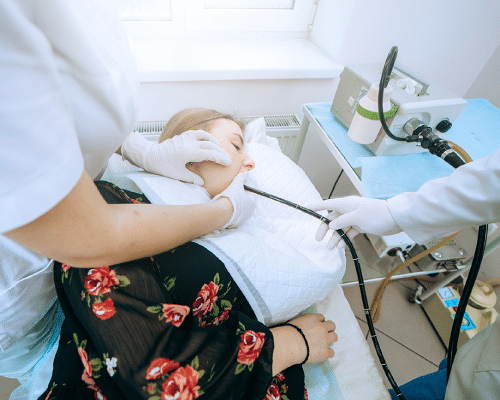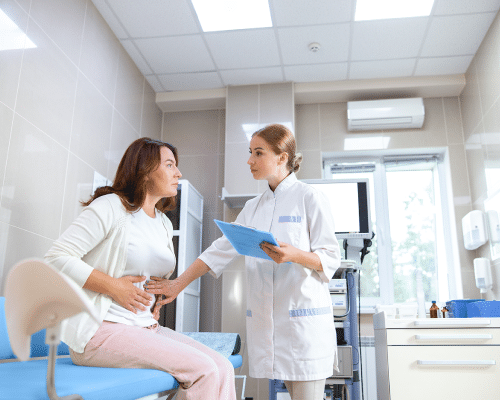NORTH TEXAS PREMIER
Colonoscopy in Dallas, TX
Identify the Source of Abdominal Pain and other Unusual Symptoms With a Colonoscopy.
Dallas Area Office
12606 Greenville Ave
Dallas, TX 75243
Mon. - Fri. 8:00 – 5:00
Sat. - Sun. By Appointment
Southlake Office
470 E State Highway 114
Southlake, TX 76092
Mon. - Fri. 8:00 – 5:00
Sat. - Sun. By Appointment
Same Day Appointments
Tel: (817) 476-8933
Same-day consultations are available. Please call to confirm availability.
Colonoscopy in Dallas, TX
Identify the Source of Abdominal Pain and other Unusual Symptoms With a Colonoscopy.
Colorectal cancer was estimated to affect 147,950 adults in the United States last year. This includes 104,610 cases of colon cancer and 43,340 cases of rectal cancer. It is the third most diagnosed cancer every year in the country, not including skin cancer. While it primarily affects older adults, there has been a rise in diagnosis in younger people. An estimated 53,200 deaths have been blamed on colorectal cancer last year. It is currently the second leading cause of death from cancer in the country for men and women combined.
Treatments
Treatment begins by performing a colonoscopy, an exam used to detect any abnormalities or changes in the colon (large intestine) and the rectum. During this procedure, a flexible and long tube is inserted inside the rectum. At the tip of this tube is a camera that lets doctors view the whole colon’s inside. Whenever necessary, abnormal tissue or polyps can be extracted using the scope during this process. Furthermore, a colonoscopy can help with the following:
- Investigating internal symptoms and signs: Having a colonoscopy can help doctors pinpoint the possible causes behind rectal bleeding, abdominal pain, chronic diarrhea, chronic constipation, along other intestinal problems.
- Look for polyps: If you’ve had polyps before, the doctor would recommend another colonoscopy to check for polyps that have been left behind and to remove them. This is done to reduce the risk of colon cancer.
- Screen for colon cancer: If you’re over 50, the doctor may also recommend performing a colonoscopy once every ten years. They may also recommend doing this earlier to check for colon cancer. However, this is only one option, so be sure to talk to your doctor about the other options available to you.
How We Can Help
Our professional physicians are experts in performing this procedure, typically taking between 30 to 60 minutes. All patients are given a sedative which will take around one hour to recover from. If a polyp was removed during the colonoscopy, the doctor might advise you to eat a specialized diet for a short time.
Should our doctor find a polyp less than 0.4 inches in diameter, you may be recommended to undertake another colonoscopy in the next 5 to 10 years. While a small amount of blood may be present in your bowel movement after a colonoscopy, this is normal. Our doctors will be able to provide you with expert advice should you feel persistent pain, pass blood, or experience blood clots.
Start looking after your body and address any uncomfortable signs and symptoms inside your body by getting a quick consultation with us. At DFW Digestive Care, we care about your well-being, so we ensure that you’re one step ahead of any conditions you may have. To make sure that you’re healthy inside and out, consider getting a colonoscopy to make sure that everything is in working order.
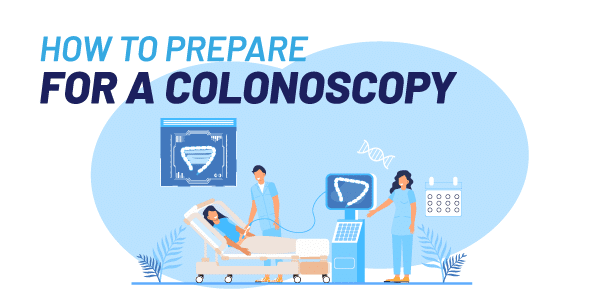
Are you about to get a colonoscopy? Admittedly, it isn’t a procedure anyone looks forward to. Nevertheless, you are making the best possible decision for your lower gastrointestinal health.
Not only can a colonoscopy be great for colon cancer screening early on, but it can also help diagnose other conditions like polyps and diverticulitis. Depending on the equipment and nature of the condition, your gastroenterologist can also address issues during the procedure.
In short, a colonoscopy provides the most comprehensive picture of your lower gastrointestinal health. But it isn’t a procedure you can just show up for. It may not be the most major procedure you can undergo; however, a colonoscopy requires preparation.
For the most part, colonoscopy preparation revolves around bowel preparation practices. If you want to know more about these, stick around and keep reading!
Low-Residue Diet Leading to the Procedure
Rarely is a colonoscopy a procedure you can have at the spur of the moment. Quite the contrary, chances are high that you need to have one scheduled with your gastroenterologist.
Upon scheduling the procedure, your gastroenterologist will have prescribed a certain diet. Whatever the diet is, its purpose is to facilitate visualization of your lower gastrointestinal tract.
In most cases, the prescribed diet is a low-residue diet. A low-residue diet consists of food that does not stay in your gastrointestinal tract for a long time. Even on a low-residue diet, your food choices may not be as limited as you might think.
A good rule of thumb is to avoid anything with large traces of dietary fiber. These can include:
- Vegetables (most of them)
- Nuts, seeds, legumes
- Corn
- Brown rice (white rice is fine)
- Whole grain products
- Fruits
Avoid high-fiber foods for 48 to 72 hours before your colonoscopy. If your gastroenterologist learns that you have not followed the diet, they can postpone your colonoscopy.
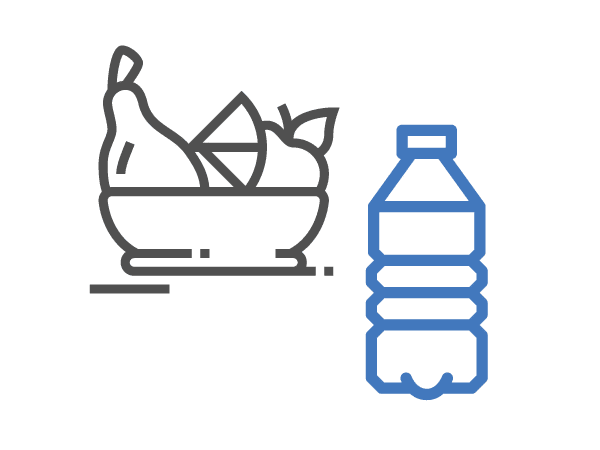
Low-Residue Diet Leading to the Procedure
Rarely is a colonoscopy a procedure you can have at the spur of the moment. Quite the contrary, chances are high that you need to have one scheduled with your gastroenterologist.
Upon scheduling the procedure, your gastroenterologist will have prescribed a certain diet. Whatever the diet is, its purpose is to facilitate visualization of your lower gastrointestinal tract.
In most cases, the prescribed diet is a low-residue diet. A low-residue diet consists of food that does not stay in your gastrointestinal tract for a long time. Even on a low-residue diet, your food choices may not be as limited as you might think.
A good rule of thumb is to avoid anything with large traces of dietary fiber. These can include:
- Vegetables (most of them)
- Nuts, seeds, legumes
- Corn
- Brown rice (white rice is fine)
- Whole grain products
- Fruits
Avoid high-fiber foods for 48 to 72 hours before your colonoscopy. If your gastroenterologist learns that you have not followed the diet, they can postpone your colonoscopy.
Clear Liquid Diet 24 Hours Before the Colonoscopy
Twenty-four hours before your procedure, your physician will help you prepare for a colonoscopy with a clear liquid diet. Liquids do not stay in the intestines for a long time, unlike solid food. Also, the liquids need to contain no dye or any sort of coloring.
Any dye or coloring may affect the color of your intestinal walls. Discoloration will make viewing your colon difficult for the gastroenterologist.
On a clear liquid diet, your food options go from broad to restrictively narrow. Twenty-four hours before the procedure, your intake needs to be monitored strictly.
You can have the following during this phase of your bowel preparation:
- Clear, electrolyte-rich drinks (sports drinks)
- Clear juice
- Water
- Coffee and tea without milk or creamer
After 24 hours of your clear liquid diet, you will have to fast and drink the prescribed laxative solution.
Fasting and Laxative Solution
For about five to six hours before your procedure, you will be asked to stop your intake. This will allow adequate gastric and intestinal clearing.
In the past, enemas were the go-to ways to prepare for a colonoscopy. However, nowadays, the enema is deemed outdated by many health professionals and physicians. Instead of an enema, patients like yourself can take laxatives and laxative solutions.
Laxative solutions are usually mixed in water or any other clear liquid. Many gastroenterologists have made it a practice to mix laxatives in flavored beverages for patients. At the time of writing, the prescribed amount of laxative solution is a gallon.
Don’t worry. You do not need to drink a gallon in one sitting. You can gradually consume the laxative solution until you have finished it.
It is common to experience inconvenience hours before the procedure since the laxative will cause frequent diarrhea. So, if you find yourself going to the bathroom frequently, don’t worry. This is expected.
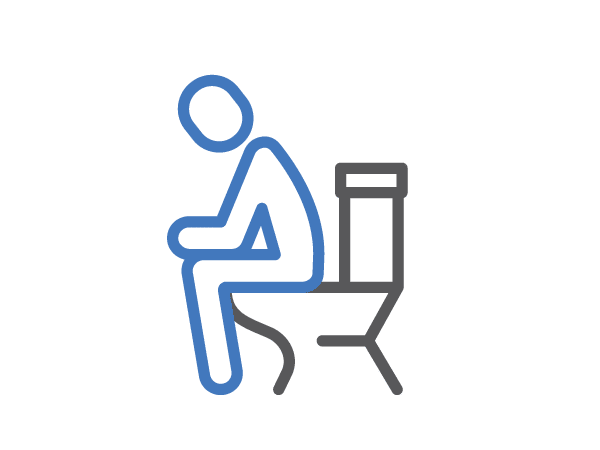
Fasting and Laxative Solution
For about five to six hours before your procedure, you will be asked to stop your intake. This will allow adequate gastric and intestinal clearing.
In the past, enemas were the go-to ways to prepare for a colonoscopy. However, nowadays, the enema is deemed outdated by many health professionals and physicians. Instead of an enema, patients like yourself can take laxatives and laxative solutions.
Laxative solutions are usually mixed in water or any other clear liquid. Many gastroenterologists have made it a practice to mix laxatives in flavored beverages for patients. At the time of writing, the prescribed amount of laxative solution is a gallon.
Don’t worry. You do not need to drink a gallon in one sitting. You can gradually consume the laxative solution until you have finished it.
It is common to experience inconvenience hours before the procedure since the laxative will cause frequent diarrhea. So, if you find yourself going to the bathroom frequently, don’t worry. This is expected.
Anesthesia Administration
An hour or so before the procedure, your physician and anesthesiologist will prepare you for sedation. For a colonoscopy, a sedative like Propofol is the anesthetic agent of choice due to its safety. Once the anesthesia takes effect, you will be ready for the procedure.
What Happens After You Prepare for a Colonoscopy?
If you have followed your bowel prep correctly, you will be ready for your colonoscopy. The colonoscopy rarely lasts for more than an hour. In fact, your gastroenterologist may complete the procedure in as little as half an hour!
During the colonoscopy, the gastroenterologist views your intestines using a colonoscope. The procedure is painless since you will be sedated. Once the procedure is complete, your gastroenterologist can give you the findings after your post-anesthesia assessment.
Final Thoughts
Nobody looks forward to a colonoscopy. However, it is actually a procedure that is quick and painless. What takes a bit of planning is the bowel preparation before the procedure. Follow your gastroenterologist’s instructions to a tee, and your colonoscopy will be a breeze!
Contact us
Schedule A Consultation
We know you are busy. You can give us a call (817) 476-8933 or leave us your details and a patient care specialist we will contact you during our normal business hours.
DFW Digestive Care will never sell your contact information or send you unsolicited offers that do not pertain to our health services.
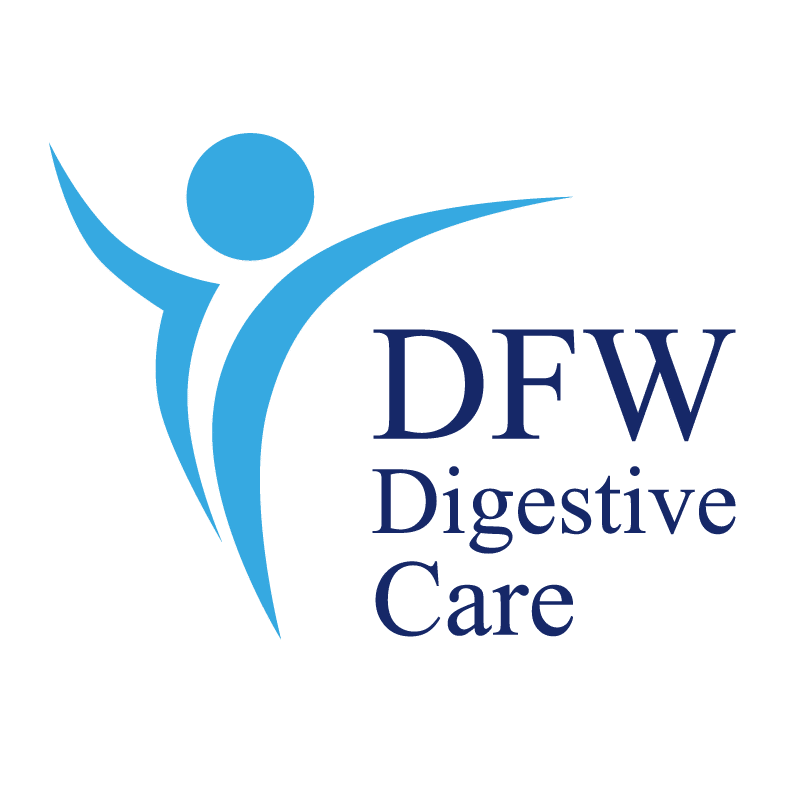
Southlake, TX Center
DFW Digestive Care
470 E State Highway 114
Southlake, TX 76092
Dallas, TX Center
DFW Digestive Care
12606 Greenville Ave, Suite 195
Dallas, TX 75243
Phone
Office: (817) 859-6093
© 2021 DFW Digestive Care.
